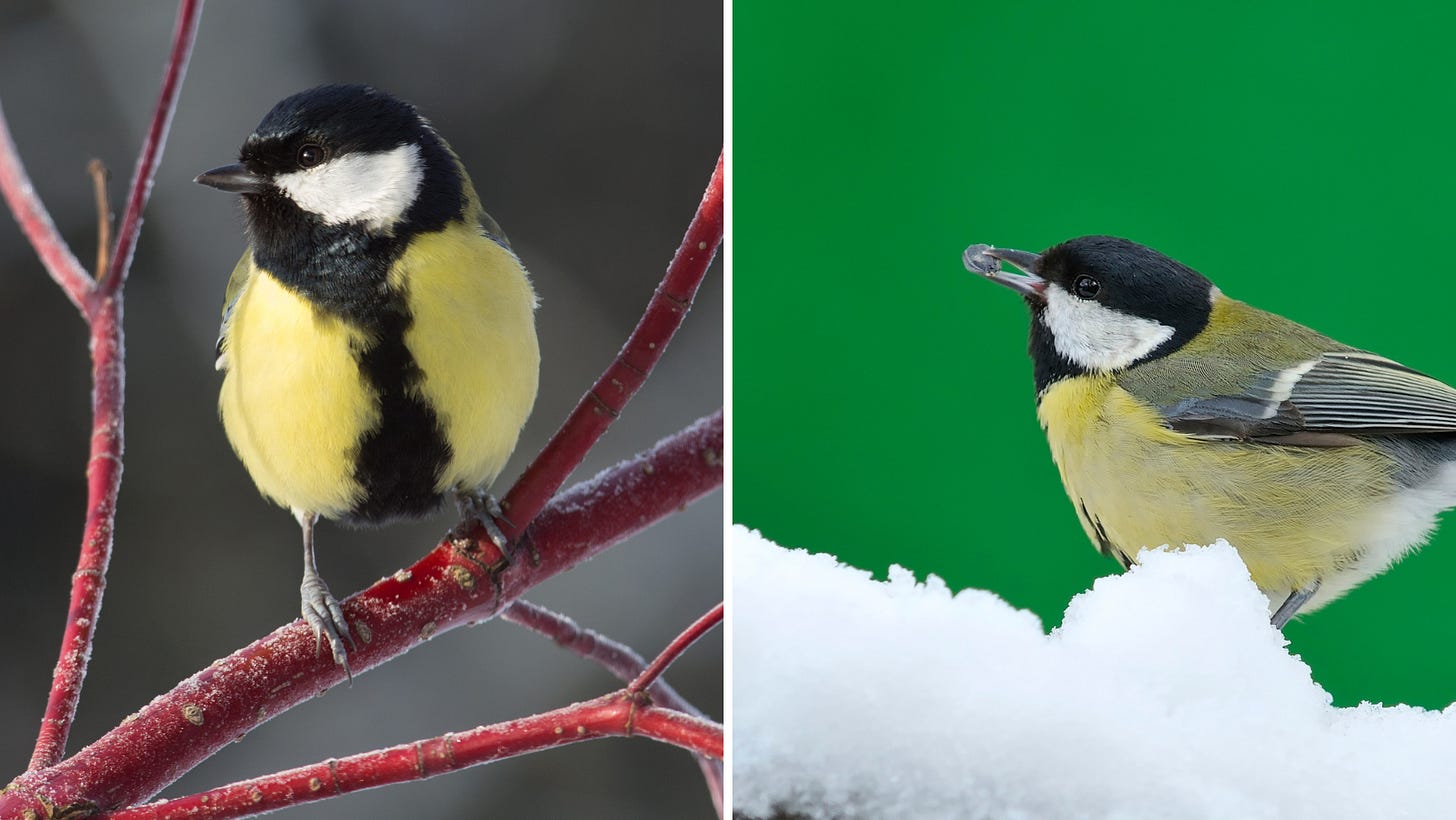Protect garden birds this winter
Why garden birds need your help during the colder months
By Annette J Beveridge
With the onset of colder weather and darker nights, it is time to start thinking about the birds in your garden. While birds have some natural adaptations to help with survival, it can still be challenging for small birds to make it through the winter.
Feathers
Feathers play a significant role in helping to protect birds. In addition to the wing and tail feathers used in flight, there are contour feathers, and soft downy feathers close to the body. These feathers (drab or colourful) have a waterproof tip.
If you think about roof tiles and how they are placed, it is similar to the thousands of feathers nestling against the bird’s body. The feathers overlap, with the downy part covered by the waterproof part of another feather. This protects birds from rain or sleet.
These feathers trap air around the body to act as an insulator. Birds also fluff up their plumage to trap more air into the feathers creating additional warmth.
Insulation
Garden birds are fairly resilient and adaptable but they lose body heat during respiration. More heat is lost due to cold air, so birds rely more on available food in gardens to lay down fat reserves. Considering that Blue Tits and Great Tits can lose 5% of their body weight overnight, being able to find food quickly is vital. This must be topped up daily as fat reserves typically last a single night.
Extensive cold spells can be dangerous and birds often huddle together at night to stay warm.
Food
If this is your first time feeding birds, the type of food will vary depending on the birds frequenting your garden. A good quality seed mixture will be sufficient at first. This can be added to a bird table, feeders or trays.
Suet blocks, balls, and pellets are always popular. Purchase sunflower seeds, and mealworms too. Some birds will enjoy mild grated cheese or porridge oats (uncooked).
Always ensure there is fresh water for them.
Shrubs and trees
Trees and shrubs provide roosting opportunities for birds which gives some protection. It is worth planting shrubs and hedges, but include some evergreens, holly and ivy.
Different varieties of birds may be drawn into your garden if the trees and shrubs bear berries. This may attract species such as Blackcap, Waxwings, Blackbirds, Fieldfare and Mistle Thrush. The berries provide birds with a fresh source of energy.
When the birds eat the seeds and they pass through the digestive system, seeds are deposited elsewhere enabling greater dispersion.
Foods to avoid
Do not put out fat from a roast dinner. It will only stick to the bird’s feathers and they will no longer be waterproof. Avoid salted peanuts, or roasted peanuts as it can lead to renal failure. Avoid putting out mouldy scraps, or mouldy bird food, cooked porridge oats, dried coconut, or milk.
Bread has little nutritional value so this should not be added to the food supply.
Providing food for birds is satisfying. You get to see so many more birds during the winter months and with each day they are fed, it is helping many birds to survive.








